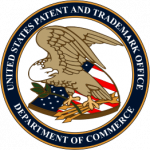Patents
Patents
Patents are granted to inventors for new and useful machines, processes, manufactures, and compositions of matter. In the United States, a patent owner has the exclusive right to make, use, and sell the patented item for as long as twenty (20) years from the date of the patent application, if granted.

The patent system was established by the U.S. Constitution, and the only source of patent rights in the United States is the U.S. Patent and Trademark Office (“PTO”). There are three types of patents: utility patents, design patents, and plant patents. Utility patents are, by far, the most common as they protect mechanical, electrical, and chemical inventions. Design patents, on the other hand, protect only design features and ornamental shapes of useful articles. Finally, plant patents protect asexually reproduced plants, and are relatively rare.
Part of the purpose of the patent system is to promote science and general public knowledge. Accordingly, the concept is to encourage inventors to reveal their secret inventions so that the public will benefit from the knowledge and have an opportunity to build upon that knowledge. In return, the inventor receives a temporary monopoly over the invention, which is enforced by the government. However, the law is designed to limit the granting of patents to true inventions only. For that reason, a patent will only be granted by the PTO if the idea is new, novel, and not obvious. If an idea is already known, or if it would be obvious to a person of ordinary skill in the particular field, then it is not a true invention and a patent will not be granted. A patent application is scrutinized by a PTO Patent Examiner for these minimum qualifications.
The safest course of action is to maintain the secrecy of an invention until a patent application is filed. Indeed, this is a requirement for patent protection in most foreign countries, although the United States allows for a short grace period under some circumstances.
It is important to note that only a Registered Patent Attorney (or Agent) may file a patent application for an inventor, unless the inventor attempts to do so alone. Most general attorneys are not permitted to file a patent application, since Registered Patent Attorneys (and Agents) are required to have an engineering or scientific background and pass a special exam given by the PTO.
To learn more about patents, or to proceed with a patent application, please contact the Firm by e-mail, telephone, or facsimile. We look forward to the opportunity to be of service to you.
